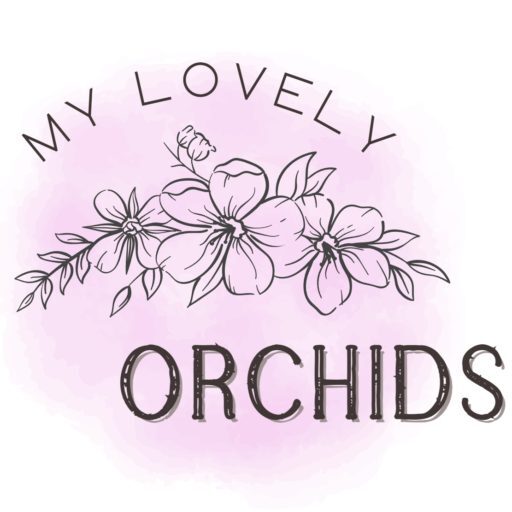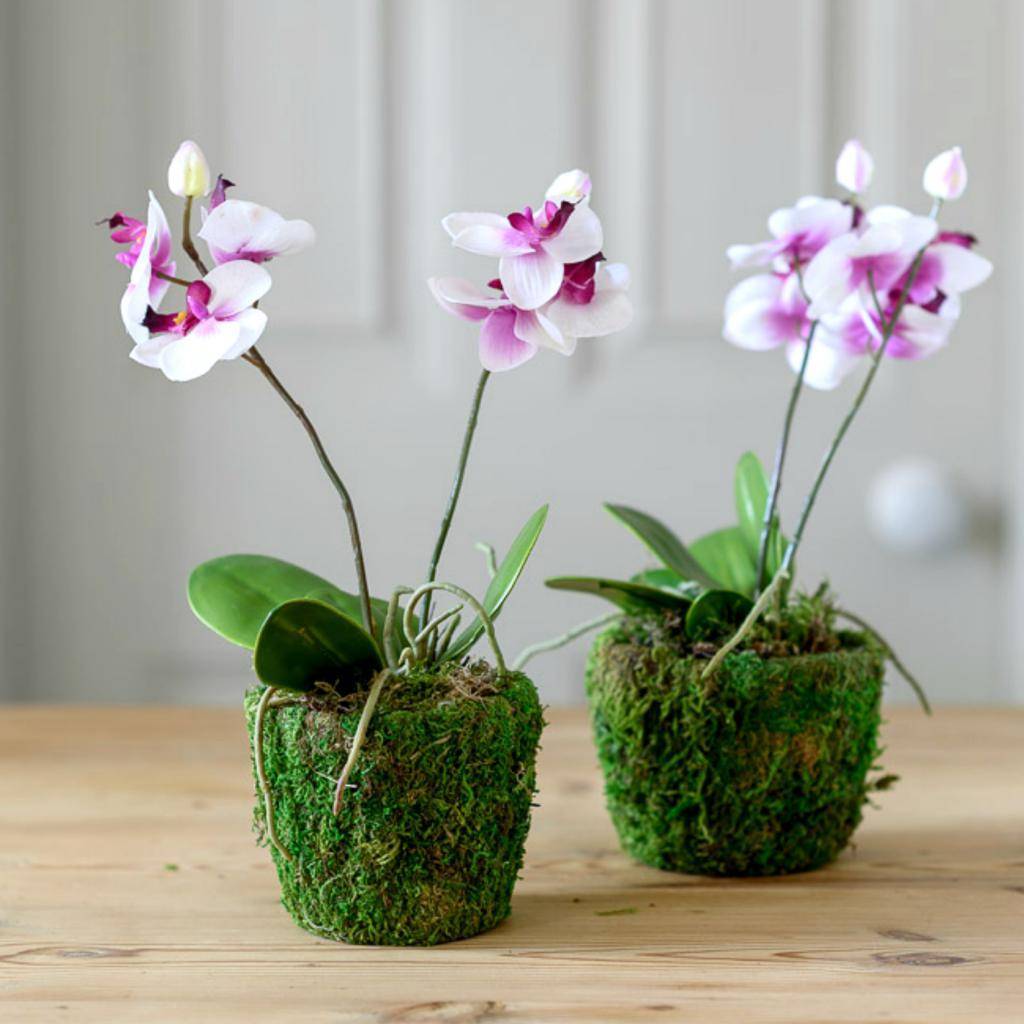Gardeners who grow orchids use special fertilizers because orchids are acid-loving plants and need special nutrients. They have a specific and unique composition. Many people are interested in whether can I use orchid fertilizer on other plants? More about this will be discussed in this article.
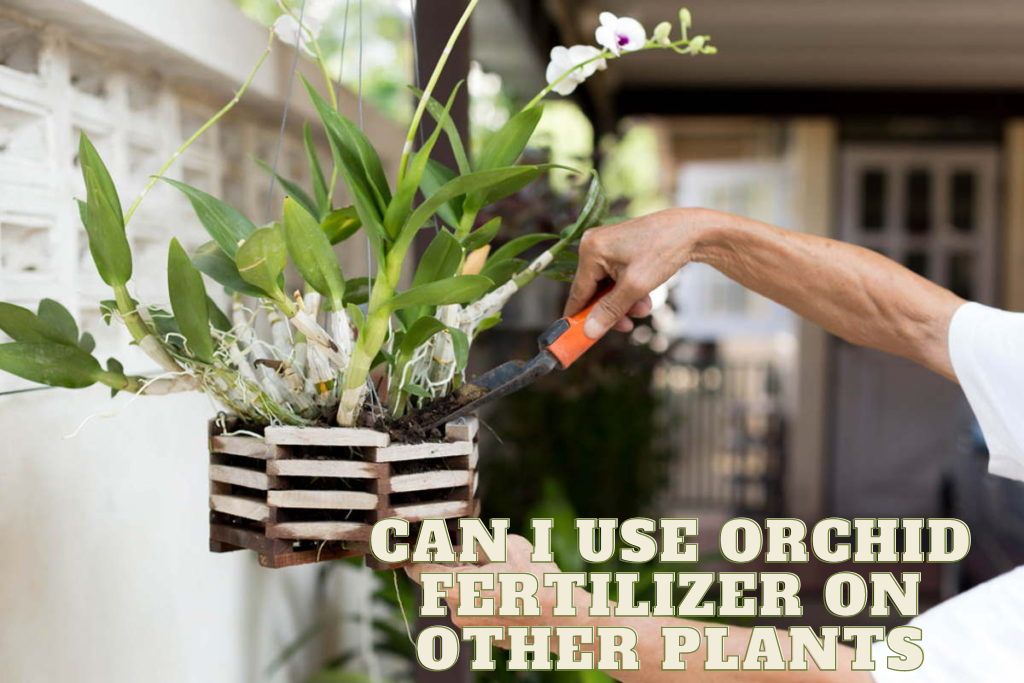
Can I use orchid fertilizer on other plants: substances contained in orchid food
Before answering the question, can I use orchid fertilizer on other plants, it is necessary to study the composition of the substances used? Orchid fertilizer includes such trace elements as nitrogen, phosphorus, and potassium. All ingredients are taken in a certain proportion to get a specific formula.
If you purchase a balanced orchid fertilizer, all components will be taken in equal amounts. If the package says 30-10-20, it means that 30% nitrogen, 10% phosphorus, and 20% potassium have been added. In addition to orchid food, other components are added to the composition of fertilizers aimed at stimulating the growth of orchids.
Each plant has a specific requirement for nutrients, and some fertilizers can harm household plants if used in excess. If you want to fertilize plants in this case, you can do it.
8 Plants That Can be Fertlized by An Orchid Fertlizer
That being said, here are some plants that may benefit from an orchid fertilizer:
- Bromeliads: Like orchids, bromeliads are epiphytes that grow on other plants and require similar nutrients.
- Ferns: Ferns can benefit from a balanced orchid fertilizer that provides nitrogen, phosphorus, and potassium.
- African violets: African violets require similar nutrient levels to orchids and can benefit from a diluted orchid fertilizer.
- Air plants: Air plants, also known as Tillandsias, are epiphytes that grow without soil and can benefit from a spray of diluted orchid fertilizer.
- Carnivorous plants: Carnivorous plants, such as Venus flytraps, require high levels of nitrogen and can benefit from an orchid fertilizer.
- Ficus trees: Ficus trees can benefit from a balanced orchid fertilizer that provides nitrogen, phosphorus, and potassium.
- Succulents: While orchid fertilizer may not be necessary for most succulents, some succulent varieties can benefit from a diluted orchid fertilizer during their growing season.
- Citrus trees: Citrus trees can benefit from a balanced orchid fertilizer that provides nitrogen, phosphorus, and potassium.
It’s important to note that not all plants require fertilizer, and some may be sensitive to certain types of fertilizers. Always check the specific needs of your plants before applying any type of fertilizer.
Orchids food ingredients
The benefits of nitrogen
The main purpose of nitrogen is the development of orchid leaves. It can be nitrate or ammonia. It does not affect the root system at all.
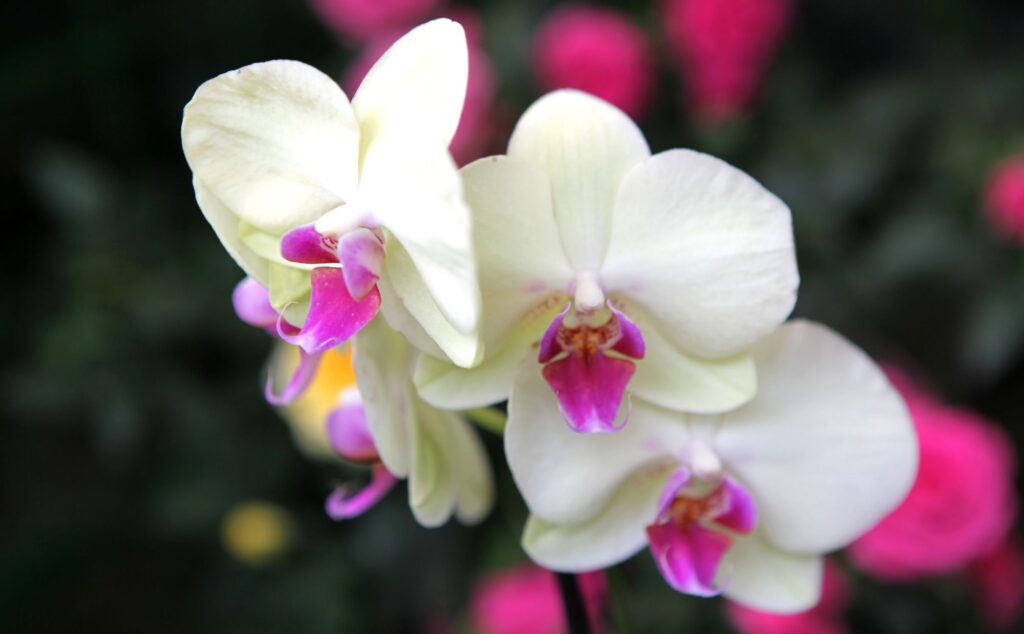
Many people wonder, can orchid fertilizer be used for other flowering platsand potted plants? In general, this is not prohibited. Nitrogen will help other household plants produce more chlorophyll and produce leaves.
Orchid growers try to avoid urea nitrogen. However, it will be useful for other colors. After all, it will strengthen their immune system.
Do not use fertilizers intended for vegetable crops for orchids. Household fertilizers should also be avoided, as this can negatively affect the growth and development of crops.
You can use balanced orchid fertilizer only when the soil lacks nitrogen.
Orchid food contains harmful chemicals that can affect your health. So beware of the fact before fertilizing your tomato plant. Test the soil Orchid fertilizers are rich in nitrogen. So if the soil already has a high amount of nitrogen, then applying orchid food can cause dehydration. You can use balanced orchid fertilizer only when the soil lacks nitrogen.
The benefits of phosphorus
This orchid fertilizer is very important for air plants when it enters the active stage of flowering. It helps to strengthen flower stalks and root systems. Thanks to this, healthy and beautiful orchids thrive.

Read also: Healthy orchid roots
Some gardeners ignore the condition of the leaves and roots of an orchid when buying a flower. They stare only at the flower, which is a gross mistake. Flowers can be beautiful. However, in the case of an unhealthy bush, they will soon die. That is why you should have in reserve fertilizer with phosphorus.
It is important to understand that houseplants require some phosphorus. The recommended NPK (NPK stands for nitrogen, phosphorus, and potassium, respectively, the first letters of their names in the periodic table) is around 1-31, 5-3-3, or 5-5-5.
For orchids, the figures are slightly higher: 30-10-10 or 20-20-20. That is why it will be difficult to find the optimal concentration for other blooming plants.
If you have leftover orchid fertilizer, you may be wondering, can I use liquid orchid fertilizer on other plants? It’s better not to do it. Because there is a high concentration of nitrogen, phosphorus, and potassium will be infused each week. Because of too much orchid fertilizer, other plants can die.
Benefits of Potassium
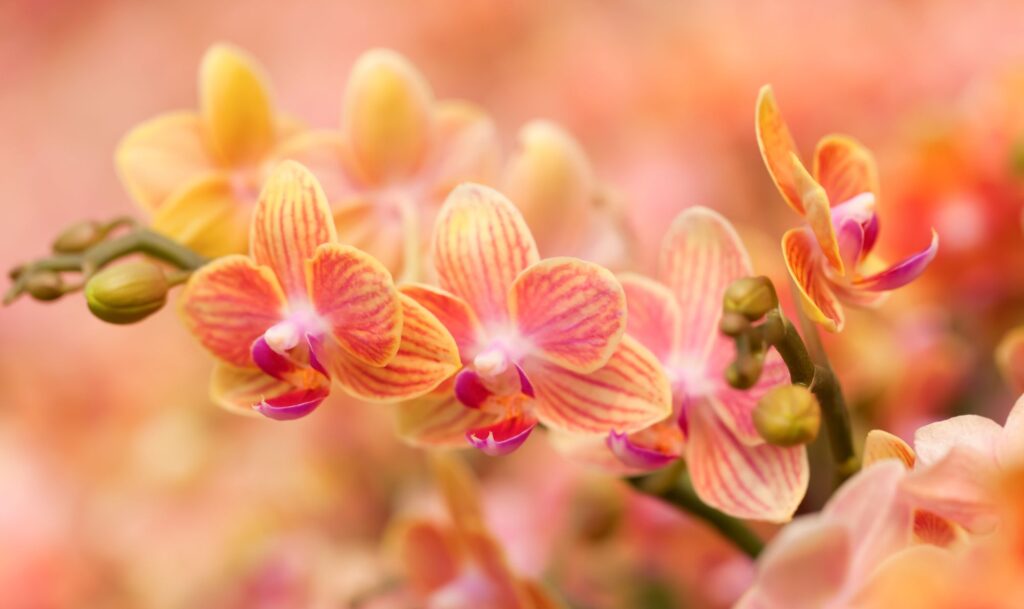
Potassium is involved in the process of opening and closing stomata and controls gas exchange in the leaves. If potassium is not enough for the orchid, it will wither. The main symptom of potassium deficiency is yellow leaves.
Other components in the composition
Plants need to get enough nitrogen, potassium, and phosphorus.
However, magnesium and calcium are equally important. It should be noted that most orchid fertilizers on the market cannot boast of their content.
If you use fertilizers for other plants, they will experience a shortage of some components.
This will provoke wilting, disease, and other problems. For other indoor plants, you need to choose fertilizers that include magnesium, zinc, calcium, boron, and iron.
How to decide on a fertilizer method
Most often, fertilizers are diluted in water before use.
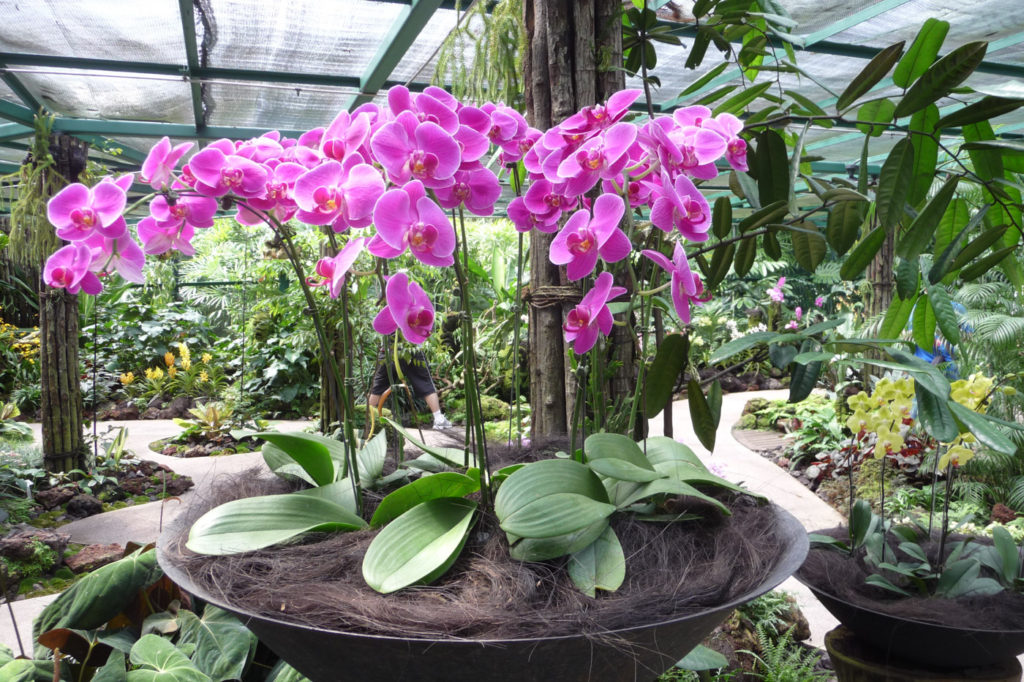
After the solution, the plant is watered in the morning. There are many other options for fertilizing orchids, however, this is considered the most popular.
What is the worst thing that can happen if I use orchid fertilizer on houseplants?
The most basic problem that can be encountered is the excessive saturation of a house plant with orchid food. Orchids need weekly fertilizer. Therefore, for other plants, this will be a lot.
The concentration of substances will be negligible. However, this is enough to provoke a glut. Almost all household plants are recommended to be fertilized at intervals of several months.
If there are too many chemical components in the potting medium, the leaves will become weak.
The plant will often get sick. At the same time, this does not stop some gardeners. Because of this, a crust is formed on the surface of the soil, on top of which there is a crystalline powder.
At first, the leaves turn yellow, after which they become brown. In the end, they completely crumble from the bush. Gradually, the house plants will die, and growth will not be observed. All of the above situations are possible if you over-saturate the plants with orchid food.
Which plants respond best to orchid fertilizers?
It is appropriate to use fertilizer for orchids if there is an African violet in the house.
It will only get better after adding such components.
The growth of African violets is carried out in the same conditions as orchids. However, they have identical nutritional requirements.
They will respond well to orchid fertilizers and various succulents. This is since they differ in the same watering schedule. Succulents, after watering with special fertilizers, will delight you with their beauty for a long time.
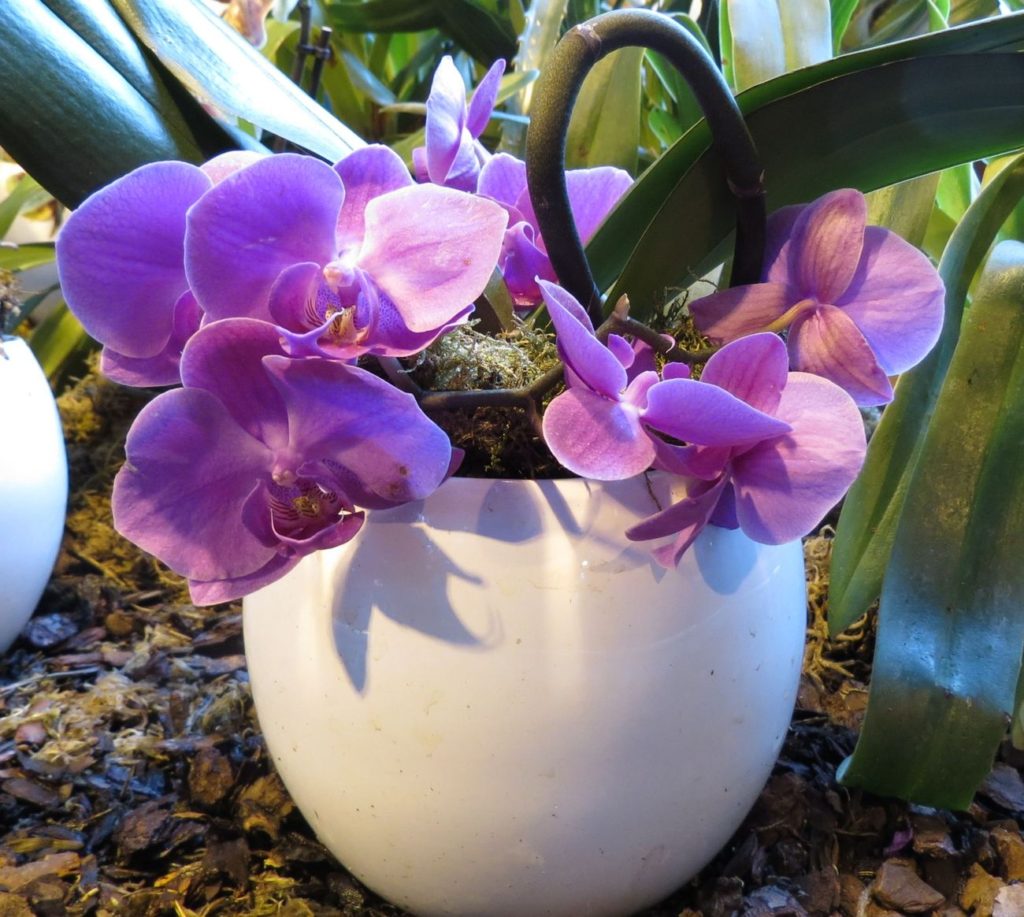
Many people are wondering, can I use orchid fertilizer on anthuriums? Often in the house, there are anthurium flowers. However, it is important to choose the optimal dosage. Anthuriums need a dosage that is 2 times less than orchids. The exact dosage can be found on the packaging. The manufacturer has already taken care of everything. As to the other plants that can be fertilized with orchid food? I would go with your beautiful flowers, and not even houseplants. Try it on your hydrangeas, azaleas and hollies outside. Other indoor houseplants might do well with a much more dilut
Conclusion
As you can see, you need to use fertilizers for orchids for other plants with extreme caution. You need to focus on the requirements of a particular plant, as well as on the frequency of application. It is better to initially dilute a little fertilizer so that after that you do not have to think about where to put the remaining solution.
Read also:
- Epidendrum orchid
- How to revive orchids
- How to grow orchids in water
- Epidendrum orchid leaves
- Orchids wilting leaves
Can you give orchid fertilizer to other plants?
Orchid fertilizer can be used for other plants, but it is best to consult the specific needs of the plant first, as different plants have different nutrient requirements. Some plants may benefit from the higher levels of potassium and phosphorus found in orchid fertilizer, while others may not need as much of these nutrients. It is always best to use a fertilizer specifically formulated for the type of plant you are growing.
